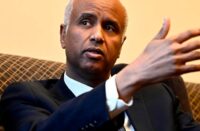Ten years after wellness advocate Belle Gibson admitted lying about her terminal brain cancer, which she alleged was cured through a healthy lifestyle, her tale has been adapted into a new Netflix series. This has reignited the controversy in Australia, where many are upset about the ongoing lack of closure in the case.
This week, authorities confirmed they are still chasing the infamous Instagram star for unpaid fines, further stoking Australian anger about one of the most audacious online frauds in the country’s history. The incident highlighted the potential damage caused by false health claims on social media.
The Netflix series, “Apple Cider Vinegar,” a dramatized version of Gibson’s narrative, doesn’t cover the events following the 2015 revelation of her falsehood. Despite the scandal, Gibson was never criminally charged.
However, in 2017, she was fined 410,000 Australian dollars ($261,000) by Australia’s federal court for not donating the funds she had raised for charity. The consumer watchdog in Victoria is still trying to recoup these funds, according to a spokesperson.
Gibson’s health recipe app, The Whole Pantry, was downloaded 200,000 times in a single month from the Apple store in 2013. She had promised that proceeds from the app and her cookbook would be donated to charities and to a child cancer patient’s family. Only a tiny portion of the total was ever donated, resulting in Gibson being found guilty of violating consumer law.
Despite her financial troubles and lack of employment, Gibson is still being pursued for the unpaid fines by Consumer Affairs Victoria. Attempts have been made to seize her assets, but the outcome of these efforts has not been publicly disclosed.
The Netflix show has drawn both praise and criticism. Some applaud its critique of online wellness culture, while others, including those personally affected by Gibson’s actions, condemn its insensitivity and profit-driven nature. Regardless, the case continues to captivate as one of Australia’s most notorious online frauds, serving as a stark warning about the dangers of blindly accepting online health advice.





